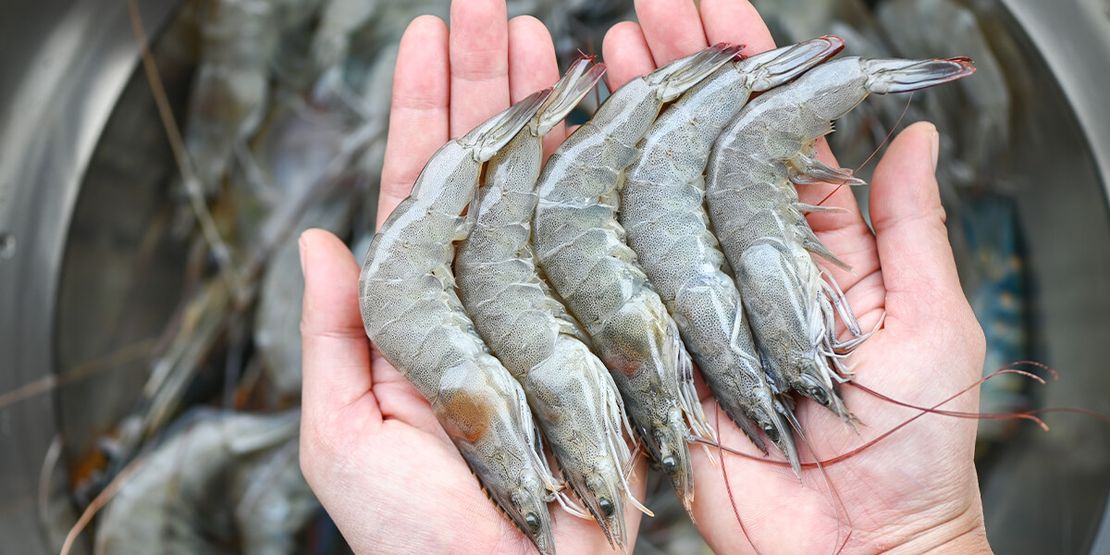Digital Aqua Farming Success: The Role of Business Intelligence for Shrimp Farmers
In the dynamic world of aquaculture, where the delicate balance between profitability and sustainability is ever-shifting, shrimp farmers are turning to innovative solutions to secure their success. As the digital era unfolds, the integration of Business Intelligence (BI) has emerged as a transformative force, offering shrimp farmers unprecedented insights into their operations. This paradigm shift in decision-making is steering the industry towards a more efficient and informed future.
As a shrimp farmer, the quest for maximizing profits while ensuring the health of the aquatic stock is a perpetual challenge. The traditional reliance on experience and intuition is gradually giving way to a more data-driven approach. Enter Business Intelligence – a comprehensive system that leverages diverse data sources and advanced tools to dissect and interpret the myriad factors influencing shrimp farming.
This article explores the pivotal role of BI in the digital aqua farming landscape, delving into its application across key metrics that define success in the industry. From understanding shrimp production dynamics to optimizing feed conversion rates, managing costs, ensuring water quality, and battling disease outbreaks, BI is proving to be the compass guiding shrimp farmers towards sustainable prosperity.
#1 Shrimp Production Metrics: Illuminating the Path to Operational Excellence
In the realm of aquaculture, keeping a vigilant eye on weekly, monthly, and yearly shrimp production serves as a compass for operational success. This BI-driven approach not only sheds light on historical data but also empowers farmers with predictive analytics. By anticipating potential fluctuations and understanding their root causes – be it shifts in water temperature, disease outbreaks, or other influencing factors – farmers can proactively fine-tune their strategies to optimize overall production efficiency.
#2 Feed Conversion Rate: Enhancing Nutritional Precision
Efficient feed utilization is the cornerstone of a thriving shrimp farm. BI simplifies the process by monitoring the feed conversion rate, which quantifies the amount of feed required to produce a pound of shrimp. This information becomes a powerful tool, guiding farmers to make informed decisions about feeding programs and facilitating a seamless transition to alternative feeds when necessary. The goal is to ensure optimal nutritional intake for shrimp, promoting both health and sustainable growth.
#3 Managing Costs: Navigating the Financial Waters of Aqua Farming
Business Intelligence doesn't just stop at production metrics; it extends its reach to the financial facets of shrimp farming. Tracking the costs of production, including feed, labor, and electricity, BI allows farmers to identify areas for potential cost-cutting. Whether it's optimizing feed usage, implementing more efficient production processes, or considering alternative energy sources like solar panels to reduce electricity costs, BI enables strategic decisions that enhance profitability.
#4 Water Quality Surveillance: Sustaining a Healthy Aquatic Habitat
Maintaining optimal water conditions is a critical aspect of shrimp farming. BI comes to the rescue by facilitating the real-time monitoring of water parameters such as pH, temperature, salinity, and dissolved oxygen levels. Recognizing deviations from optimal conditions allows farmers to implement corrective measures promptly. Whether it's introducing aeration systems or considering a relocation to ensure a healthier environment for shrimp, BI ensures that water quality remains a cornerstone of successful aqua farming.
#5 Disease Outbreak Preparedness: Proactive Measures for Shrimp Health
Disease outbreaks can be catastrophic for shrimp farmers, impacting both production and profits. BI empowers farmers to track and monitor potential disease outbreaks, providing the necessary data for proactive measures. Whether it's implementing water disinfection protocols or controlling shrimp movement to prevent disease spread, BI equips farmers to respond swiftly to emerging threats, safeguarding the health of their aquatic stock and preserving the overall sustainability of their operations.
Sailing Towards Sustainable Prosperity with Business Intelligence
In the ever-evolving landscape of digital aqua farming, Business Intelligence emerges as the captain's compass, guiding shrimp farmers through the complexities of production, nutrition, finances, water quality, and disease management. By harnessing the power of data and analytics, farmers not only optimize their operations but also contribute to the long-term sustainability of the industry. As the tides of technology continue to shape the future of aquaculture, those who embrace the insights offered by Business Intelligence are poised to navigate towards sustainable prosperity.
Recommended for you
Top 10 Essential Tips for A Worthy Thailand Travel
Rowan (Guinness Bear)
Food in Thailand Guide: Everything You Need to Know
Tle (Hungry Bear)
Travel to Koh Samui: Day 2 Trip to Visit the East Coast
Shane, The Bear Traveler
Ab-Aob: A Thai-Western Cuisine in Asoke
Tle (Hungry Bear)















